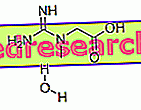
Scientific name
Boswellia serrataFamily
BurseraceaeOrigin
Africa, Arabia, India.Used Parts
Use oleoresin extracted from the trunk and twigs (incense).Chemical constituents
- saponins;
- Oils;
- Tires;
- Triterpene acids (beta-boswellic acid).
Boswellia in Herbal Medicine: Properties of Boswellia
Anti-inflammatory and anticancer properties are ascribed to boswellia.
Usually, boswellia extracts are indicated in chronic inflammatory diseases with immunological or allergic pathogenesis: bronchial asthma, inflammatory colitis, rheumatoid arthritis, dermatitis, periarthritis, rheumatic arthritis, Crohn's disease.
Biological activity
As mentioned, different properties are attributed to boswellia, although its use has not obtained official approval for any type of therapeutic indication.
The anti-inflammatory action ascribed to boswellia appears to be exerted by the boswellic acid contained in the resin extracted from the same plant. More in detail, this compound reduces the production of leukotrienes through the inhibition of the 5-lipoxygenase enzyme and also exerts an anti-complement action.
The anti-tumor properties attributed to the plant are also attributed to boswellic acid. However, these activities have only been confirmed by studies conducted in vitro on leukemic cells. Therefore, before confirming with absolute certainty the actual antineoplastic action of the plant, further research and studies are needed.
The essential oil extracted from boswellia, on the other hand, has been shown to possess antifungal activity in in vitro studies. Unfortunately, the anti-fungal action exerted by this plant does not affect pathogenic human fungi as much as pathogenic fungi.
Finally, it is believed that boswellia can be a valid aid in the treatment of rheumatoid arthritis, thanks to its anti-inflammatory properties. However, the real therapeutic efficacy of the plant in this area remains a much debated topic. In fact, while some studies state that the use of boswellia in patients suffering from rheumatoid arthritis produces an improvement in the symptoms induced by it, others still claim, instead, that the plant is not able to bring any benefit.
Therefore, before we can approve similar uses of boswellia in the medical field, there is a need to conduct more in-depth clinical studies.
Boswellia in folk medicine and homeopathy
The properties of boswellia have long been known to folk medicine, which uses the plant as an anti-inflammatory and anti-arthritic remedy; as well as using it as a remedy to combat inflammatory bowel diseases.
In traditional Indian medicine, however, boswellia is used in the treatment of various disorders, such as dysentery, ringworm, arthritis and pathologies of the respiratory system.
Boswellia is also used in homeopathic medicine, where it can be found in the form of granules, mother tinctures and oral drops. In this context the plant is used in case of pain, cramps and muscle stiffness, headache, irritable bowel syndrome, bronchitis, pneumonia, infant insomnia and ear infections.
The dose of homeopathic remedy to be taken may vary from individual to individual, also depending on the type of disorder that needs to be treated and the type of homeopathic preparation and dilution that you want to use.
Side effects
Following the use of boswellia, undesirable effects can occur on the gastrointestinal tract and on the skin, such as epigastric pain, nausea and dermatitis.
Therefore, patients suffering from pre-existing gastrointestinal problems should be very careful when using boswellia and its preparations. Generally, in these cases, it is advisable to consult your doctor.
Contraindications
Ascertained hypersensitivity to one or more components.
Pharmacological Interactions
- NSAIDs and corticosteroids: this is a positive interaction, that is, a synergistic enhancement of the anti-inflammatory effect of drugs, without gastrolesivity. With this mechanism, boswellia reduces the administration of anti-inflammatory drugs.



